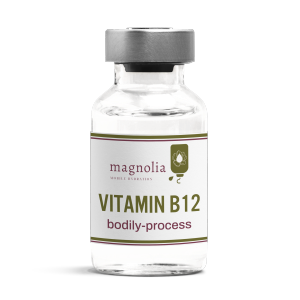Vitamin B12
Vitamin B12, also known as cobalamin, is a water-soluble vitamin that plays an important role in many bodily processes, including the production of red blood cells and DNA, as well as the proper function of the nervous system. It is primarily obtained through the diet, and can be found in animal products such as meat, fish, and dairy.
Vitamin B12 deficiency is a common health problem, particularly among older adults and vegetarians or vegans who do not consume animal products. Symptoms of vitamin B12 deficiency can include fatigue, weakness, tingling or numbness in the hands and feet, and difficulty with balance and coordination.
- Institute of Medicine (US) Standing Committee on the Scientific Evaluation of Dietary Reference Intakes and its Panel on Folate, Other B Vitamins, and Choline. (1998). Dietary reference intakes for thiamin, riboflavin, niacin, vitamin B6, folate, vitamin B12, pantothenic acid, biotin, and choline. National Academies Press (US).
- Pawlak, R., Parrott, S. J., Raj, S., Cullum-Dugan, D., & Lucus, D. (2013). How prevalent is vitamin B12 deficiency among vegetarians?. Nutrition Reviews, 71(2), 110-117.
- Smith, A. D., Refsum, H., & Bottiglieri, T. (2016). Folate, vitamin B12, and neuropsychiatric disorders. In Handbook of clinical neurology (Vol. 135, pp. 391-404). Elsevier.

